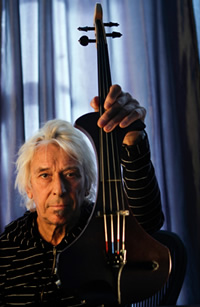

John Cale - Quotes
Albums
- Vintage Violence
- Church of Anthrax
- The Academy In Peril
- Paris 1919
- June 1, 1974
- Fear
- Slow Dazzle
- Helen Of Troy
- Sabotage/Live
- Honi Soit
- Music For A New Society
- Caribbean Sunset
- Artificial Intelligence
- Words For The Dying
- Songs for Drella
- Wrong Way Up
- Last Day On Earth
- Walking On Locusts
- HoboSapiens
- Circus Live
- Shifty Adventures in Nookie Wood
- Mercy
- POPtical Illusion

"We did it in three days. Lou Merenstein and Bob Schwaid during the recording. They showed up but they were bemused, if not hostile. But I was also very insecure about those songs. They were written that summer. It was tense. Vintage Violence was basically an exercise to see if I could write tunes. There's not too much originality on that album, it's just someone teaching himself to do something. I was masked on Vintage Violence. I didn't realize it at the time, but the cover tells you that: it show me with a stocking over my face. You're not really seeing the personality."
***
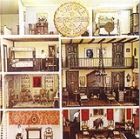
"Anthrax was three days in the studio with Terry Riley. John McClure was head of Columbia Masterworks at the time, and he wanted to expand the classical music line. It was not doing as well as rock and he wanted to get in on the action. We had Bobby Colomby from Blood, Sweat and Tears and Bobby Gregg from Dylan and the Hawks on drums. Adam Miller, who sang on 'Patrick Lee', was a friend of mine, a songwriter who worked mostly on commercials.
Anthrax was just an improvised gig with Terry. He got disillusioned I think, in the middle of mixing. It turned into a real mixing album. A lot of hard work went into that album but Terry felt he was being obscured. He wasn't being obscured, it was just that we'd put on so many organ tracks. To pick out a particular instrument was very difficult, so you couldn't bring him out anymore without bringing out the other instruments and making it imbalanced. He felt we were out to gang up on him, which wasn't true. As a rule he's very easy to get along with---charming, very quiet, very stable. He wants to do another album, so we're trying to set it up."
***

"I took three weeks in England to do The Academy In Peril, and it wasn't enough.
I spent a week at the Manor in England recording asn after that I had the bare essentials os some pieces that I wrote down. I had to wait around for two weeks for the Royal Philharmonic, but I was pleased with the results. I had forgotten what it was like to work with musicians like that., who really need an authorative figure. I had to conduct the orchestra. The pieces were self-explanatory, but they needed someone to tell them where the beat was because there was no time signature on the music."
"The results on John Milton are not entirely to my satisfaction because of the very low level of the cut. It's a long piano piece, the inspiration came to me after seeing a BBC tv Omnibus programme, I found Milton very interesting, what he did with language, his attitude to it-- very puritanical, very rigid.
The piece I have written is romantic, almost French impressionist. But the way it was recorded-- it was so soft. We were using this church in Cripplegate, London. But the orchestra hasn't go any presence.
It was really funny, you know, I used to be in an orchestra myself see, so I was a bit easy-going about the whole thing, like 'we'll try this...how about that' but I know with classical symphony orchestras what they are really at home with is authoritarian figures. I think it would be a totally different story if I was conducting Brahms, but because I was doing my own stuff, which was written very strangely, it was a bit difficult for them. But they did very well, I think the way the approached it was like they would approached Cage or something like that."
***

"My third solo album, Paris 1919 was the last record I did for Reprise. We recorded in Los Angeles and the producer was Chris Thomas, an Englishman who recently left George Martin's AIR Studios, when he had produced Procol Harum. I didn't know anything about Chris Thomas but David Berson said, 'I've got a guy for you.' And we had a whale of a time doing this thing. There were some crazy things going on. I gave Chris a ride on the bonnet of my Cobra up Sunset Boulevard. When I think back I'm horrified by that. I we'd got stopped we would have both been in jail. I learned a great deal from Chris in terms of general feedback. The weird part was his mother's being form Wales and knowing my mother's mentor in the education system."
***
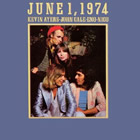
"My first appearance on an Island recording was on an LP made from a concert which took place at London's now defunct Rainbow Theatre on 1 June 1974; the date became the album's title. I was actually one-fourth of the featured band — the others were the former Soft Machine guitarist Kevin Ayers, who had invited everyone to guest at what started at his own concert, the former Roxy Music musician Brian Eno, and Nico...This was the first time I had gone on stage on my own. And to me it was so important it was nerve-racking...The night before the concert Kevin and Cindy got together. That did it for me. She lied about it, but in the end I was able to go to Kevin and say, 'Look, as a gentleman, tell me, did such and such happen?' Kevin said, 'Yes.' I went back to Cindy and said 'Look, you fuck!' and things just got worse and worse."
***

"The recording of Fear was interrupted by the June 1st concert. That concert was put together by Richard Williams and Island Records. They had all these cult people on the label. The idea was that if you put them all together you might sell enough to justify their presence.
Anyway we were all sitting in the studio, Brian Eno was running around the kitchen making coffee 'cause Chrissy (Hynde) said "somebody had to be domestic around here". I was downstairs working on arrangements when in jumps Doug McClure from the tv series The Virginian.
I couldn't figure out what he was doing. He said it was his birthday so he was running around London---running down alleyways, I guess, 'cause our studio was in a real cul de sac. Everything stopped again; nobody could figure out what the hell he was doing there!
Most of Fear was done with the band on June 1st 1974. Eno used to carry his synthesizer around in a little briefcase. For "Momamma Scuba" we had so many people in the studio that we were running out of mikes. The density on the track was so great that we had no power left. We had a ton of guitars, but you'd never know it because they are all so diffused."
***
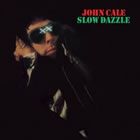
"On my second Island LP, Slow Dazzle, released in the UK in April 1975, I wanted to see if I could write singles. You pick up on the potential of a situation and expand it into something thqat hasn't been realized the way it is right now. If you push it far enough it'll develop into something else. I don't want to get philosophical about it, but love and all that shit isn't necessarily wht rock is about. Slow Dazzle sold best of my solo albums until then. Most of it was written in the studio. My Beach Boys records were my personal soundtrack. Somebody told me later that Brian Wilson heard 'Mr. Wilson' and thought it was 'sarcastic', which I can't really say I understand. I'll concede a healthy dose of irony, but it's still a tribute to him. Brian Wilson wasn't too pleased with 'I believe you, Mr. Wilson, I believe you anyway'. But the thing is, it's about him and the former prime minister Harold Wilson. So either way I lose with him. He doesn't want to share a song with Harold Wilson."
***

"It could have been a great album. I came back from finishing Patti Smith and had three days to finish "Helen Of Troy" before I went on Italian tour. I was spending eighteen hours a day in the studio. When I got back, I found the record company had gone ahead and released what amounted to demo tapes. The trouble was that Island had their own ideas of what that album should sound like. They wanted to include songs I don't particularily like, but it was also an impertinent assumption on my part that I was capable managing myself. My determination to have "Helen Of The Troy" the way I did was not really fair to Island or my management, especially at a time when Island was loosing it's percentage of the market, which was making everybody very paranoid."
***
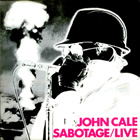
"Those kids punching the air in mock salutes declaring they are Ready for War! make me sick... I bet they are ready... like hell. I should have an induction room backstage. Let's see you come back and enlist.
But I have received a lot of reaction from the album like that. Even some of the guys who devise war games for the Pentagon have come to the shows as a result of that record and this tour. It looks like finally I have made an American album.
Right now America has this lingering weak-sister image, but that's because both America and Russia attempt to make deals about the rest of the world while working under the threat of nuclear confrontation. This album is about going through that nuclear barrier, I think that's important. You've got to experience a nuclear war and find out exactly what it does, how people live in the face of it after the fact of it.
There's no reason though, to force my notions on people, I suspect other people are more effective at putting across some of the things i'm interested in. Their ways, at least, are more digestable. I'm afraid nobody really wants to hear what i'm singing about. Its beginning to dawn on me that not that many people are convinced of my commercial appeal."
***
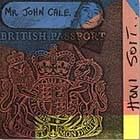
"I used a producer this time, because I couldn't have done the album without one. I told Mike Thorn, 'Look, I've got a problem. Before I go into the studio, I rehearse all the shit until it turns into vapour. By the time I get into the studio I'm so bored with that shit that what's going to happen is I'm going to make up songs and one thing will lead into another. I need a record of what I'm going to do in there.' So I had cassettes of the first six days of recording, tape machines running continuously. And we ended up with three times as much material as we intended. We had a number of poems, and tried each against whatever music tracks we had. It ended up as a real drum record, since we worked hard to get good drum parts."
***

"On Music For A New Society, I wanted to do a Marble Index - put the songs down, then write independent arrangements around them, itīs an arranger's record, it even goes outside the realm of that, it's like the BBC Radiophonic Workshop. The whole thing is hooked on the voice, which I was really proud of; the voice is sticking out there, it's not hidden. There were some examples where songs ended up so emaciated the weren't songs anymore. There was a purist notion of what it was supposed to be, but it flowered into something entirely different, with a lot of overdubbings. The only track with a band on the whole album is Changes Made and that shouldn't be there, but the record company insisted on it."
***
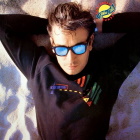
"The songs on Caribbean Sunset are pretty tight. Model Beirut Recital is sort of idiosyncratic. It sort of lurches along well-intentionally.... the worst thing about the album is that some of the songs might sound cute. Maybe i'm a balladeer and not a rock'n'roller.
Like Music for a New Society this one was improvised too, except for Damn Life.... you just sit down and turn the machine on and off you go. Bob's your uncle. If you're lucky you're lucky.... it's lighter than Society, closer to the pop textures of Slow Dazzle.... so all of them were done like that. All you had at the end was a dismembered texture, you didn't have like a basic at all. It all evaporated into different.... one part would have nothing to do with another. Model Beirut Recital is a pretty considered effort to deal with an obnoxious subject in a passionate, sympathetic way. That laconic edge had to be there. Singing with an Arab accent, poking fun at it.... Villa Albani is about financing arms deals through the Vatican.... I'm more direct because I have more fun doing it.... Praetorian Underground is a pretty angry kinda song about the Velvet Underground copyists....""
***
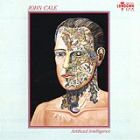
"After I finished Camera Obscura, I went away for a couple of weeks, wrote some songs with counterculture journalist Larry Sloman, and came back and made Artificial Intelligence. That was a good way of working, very efficient. But Artificial Intelligence, my last pop album, didn't have much impact, I can't figure out why, because I liked that record. There were a lot of good ideas in it. We had three and a half weeks to complete it, which was ridiculous. We spent one week writing material amnd then we went into the studio and threw half of it out. Too many of my records were done like that. Give me five grand adn you can have the cassettes. I am a ham. but at the time I was very pleased with Artificial Intelligence because for a change there was more singing in there than screaming. Some of it has that psychotic element, but it's downplayed and it's more effective that way. Just sing the song, don't get excited, just take a little blue pill."
***
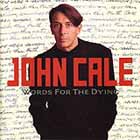
"Songs Without Words was originally written for a ballet, and Carmen Miranda was one of three collaborations recorded between Brian and me. The actual album was originally for piano and voice and then I decided to go in and orchestrate it. Brian got a video copy of the Amsterdam premier and later I sent him a Canadian documentary about the Falklands war that used the suite, Lie Still, Sleep Becalmed was used as a tribute to the dead on both sides of the war.
Brian was initially impressed by the idea of me sitting at a piano and singing this classical piece. Ironically, the piano parts were dropped. There was a pedal steel part too that was also dropped, which was a result of hearing it played well for the first time by Soviet musicians, when we finally went to Moscow to record it. They dug out every inch of expression from the music. It was amazing, really... total discipline.
Do Not Go Gentle Into That Good Night was the one that worked best. It's kind of a camp version set to a tango. I knew it couldn't be rock 'n' roll; I was after doing something that would help me come to terms with Schubert and Hugo Wolff."
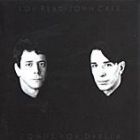
"We were very organized and professional whilst recording Drella which makes me very happy, because I didn't know how it was going to go. We both have oblique styles of living, and I think that as things changed, we did too.
I had a lot of luck with Andy. He was very generous with me. He'd never not have time, help came very easily from him; he was a problem solver.
There aren't any voices that avoid responsibility. That's something that Lou and I have taken very seriously. We accept responsibility for the effects of what we do. I really like just the two of us. The stuff we've recorded is very hard, like marble. The musical ideas are sometimes lyrical and melodic and simple, and sometimes they're aggressive and orchestral and have a little majesty. Musically, we have what we want. There's a certain pristine element we want to keep.
I think there was a fear of failure, but there was a determination that here was something we could do better than anyone else."
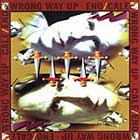
"I was intrigued by the whole idea of working with Brian. There was never a question of, 'Well, I'll produce you and you produce me'. It was compartmentalized and cooperative at the same time. And I got elements in there of all the things I wanted Brian to have. I wanted Brian to belt out the songs; I got a little bit of that. And I got a style that we set for ourselves, which works just for the two os us. Especially the vocals work well. There's also something really english about this record that I like. It brought me back to what I would do if I was at home, a kid in Wales again. It's something I can't get away from, and Brian brought it out of me."
***
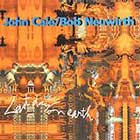
"When I got through with Drella I went to St Ann's and got them to commission the project. Then MCA popped up and said lets do it. I'd known Bob for years and we jumped at the chance. I don't know any record label who could have foreseen what this piece was going to be. I'm really gratified with the results...the concept is pretty expansive. The thread between the songs could have been pretty much anything. There are so many hooks thrown away in the record that you could fashion more than one story. It depends on what kind of story you want to tell, whether you want a romantic story, a tragic story, or a social commentary story...all those are possible as the record stands."
***
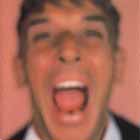
"The album evolved from being on the road with New York City's Soldier String Quartet, every room we played needed to be rewired to facilitate a string quartet, so during those boring sound-checks we wrote some new songs. A lot of the other albums i've done were improvised in the studio, so they have this tension-filled aspect. I didn't edit too much of this album from where it started.
My songs are always about something, its almost obsessive. I'd like to write a song that's not about anything but inevitably there's something didactic that happens. I'd probably write better songs if it weren't for that.
Dancing Undercover has that loopy kind of fiddle playing you put on top of a song which gives it a slinky, sexy sound and Crazy Egypt is about a woman in Louisiana who sells antiques and whose prime directive is to rip people off. The song came together easily. I had a bass line for the song so I called up David Byrne. He came along and played guitar on top of it, and then I wrote the words. It was very painless.
Set Me Free is the least arranged song and because of that it's very simple, Entre Nous is autobiographical, it's about me being at the center of many different situations at once.
Some Friends was originally just a chunk of music that was moody and drifted around. I was going to use it for a film soundtrack, then I turned on the tape and started writing the words using onomatopoeia. In the end it was just about Sterling. I was glad that song happened because it resolved a lot of things in my head.
I used musicians judiciously, anyone willing to step out of the box a little is worth their weight in gold, then you don't have to tell them what to play."
***
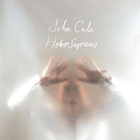
"The songs on Hobo are different from my past stuff in that nearly all of them were written in the studio. I don't like being in the studio, so I'd try to get things done as fast as possible and run to the gym. New recording methods are gratifying — you get to where you want to go very swiftly."
***
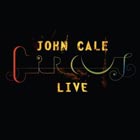
"The record company popped up late in a nine-and-a-half week tour and said 'Let's do a full album.' We scrambled a truck out of Amsterdam when there were two weeks left. You look around and see which of the remaining gigs have the best facilities, which halls are really good, if they're clubs which ones have high ceilings over the stage for instance — because if it's a low ceiling, you're gonna have separation problems and a load of feedback.
"Groningen — which is the majority of the recording — is a beautiful art theatre. It has a proscenium and a high ceiling above the stage, very warm-sounding, so we did it there. Then we had no choice, we had to go to Nijmegen which is a punky little club that really sounded pretty good when it came to reviewing the results. But by Nijmegen we were burnt, we were crispy critters."
***
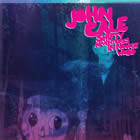
Shifty Adventures in Nookie Wood
"Some songs I wrote with a Fender Telecaster, some with bass and some with a bunch of keyboards and put some back-up singers and horns on there. I've dressed up the turkey a little bit."
***
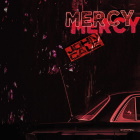
"Most of the artists that joined me on the tracks, they had their own atmosphere to them. And I didn't try and push them in any direction. I just let them be and really inhale the spirit that they brought to the song. The emotion of the song really was joined by their performance. Weyes Blood has a very deep and emotional voice. She just warms the track. And Animal Collective really has this multi-voice personality. So I laughed a lot when we did Everlasting Days."
***
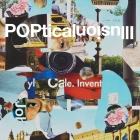
"It was just looking at what the circumstances at the time were about and working it, pushing the edges again. I had a good time doing it. I wrote a lot of songs in that period and I was very happy about how it all proceeded. It was a hard road to charge down. I didn't want to stop with one idea. I was really happy with how careful I was about not doing the same thing twice. That's always important to me. Every day I would be in a studio doing a new song. Every time I got to the end of an idea, I would just go back to the drawing board and start again, and then have as many new ideas as I possibly could.."
***